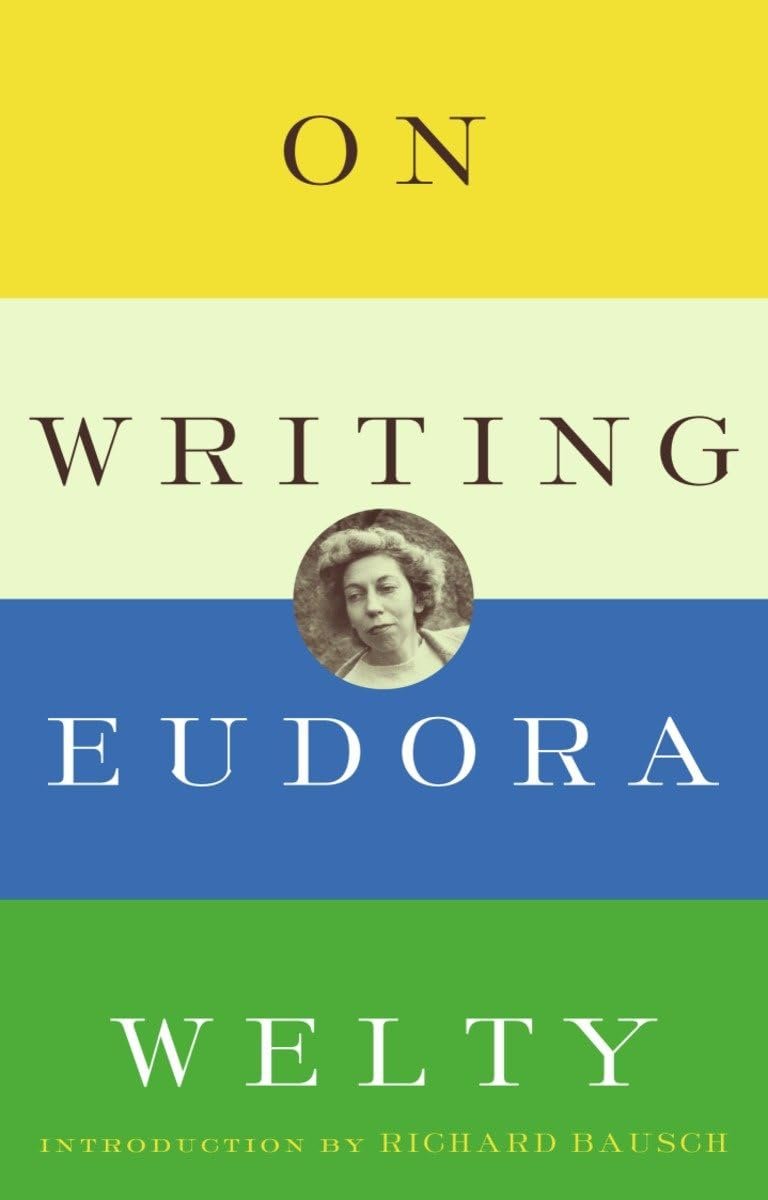
11 Aug Crafting the Craft: Unveiling the Wisdom of ‘On Writing’
Unveiling the Craft: A Reflection on Eudora Welty’s On Writing
As a lifelong lover of literature and the written word, I find myself gravitating toward books that not only tell a story but also illuminate the art of storytelling itself. Thus, when I stumbled upon Eudora Welty’s On Writing (published by Modern Library), I felt an instant connection to its promise of exploring the backbone of narrative craft. Welty, one of the twentieth century’s literary giants, has always fascinated me. Her deep understanding of place, voice, and memory resonated through her fiction; the prospect of diving into her insights on writing was simply irresistible.
In On Writing, Welty masterfully condenses her wisdom into seven concise chapters that serve as a beacon for writers and dreamers alike. The core themes she explores—place, voice, memory, and language—are not just fundamental elements of storytelling but also reflections of the human experience. These chapters provide an invaluable guide on what it means to forge a narrative that feels alive. As Welty wisely declares, “The novelist works neither to correct nor to condone, not at all to comfort, but to make what’s told alive.” This quote encapsulates her philosophy on storytelling and struck a chord with me as I reflected on my own writing journey.
What’s truly enchanting about Welty’s writing style in On Writing is its blend of accessibility and profound insight. Each chapter flows effortlessly, allowing readers to absorb her lessons without feeling overwhelmed. Her anecdotes and examples, drawn from her illustrious career, breathed life into abstract concepts. Notably, her discussion of “place” as a character in itself made me rethink the environments I create in my own fiction. She asserts that “place is never cruel; it’s the people that cause hurt,” a sentiment that has lingered in my mind long after closing the book.
Welty’s emphasis on “the mystery” of writing, the unseen magic that happens when a writer conjures ideas into tangible language, left me both inspired and contemplative. It’s a reminder that writing is as much a personal exploration as it is an artistic endeavor. Indeed, if I could take away one piece of wisdom from this gem, it would be Welty’s gentle reassurance that the creative process is both a journey and an operation of faith.
For aspiring writers, seasoned authors, or even avid readers seeking to understand the craft behind the stories they cherish, On Writing stands out as an essential companion. It’s far from a rigid “how-to” manual; rather, it invites you into Welty’s literary world where you can connect with the essence of creation. The warmth of her advice—similar to a comforting conversation with a wise friend—makes it an invaluable resource for anyone looking to cultivate their narrative skills.
In closing, I found On Writing not just enlightening but an experience that rekindled my passion for storytelling. Welty’s insights and exquisite language washed over me like a gentle breeze, leaving me with a renewed sense of purpose as I retreat to my own writing nook. Whether you’re a novice writer or a lifelong reader, this book will undoubtedly enrich your understanding of the art of fiction and inspire you to embrace your own narrative journey.









